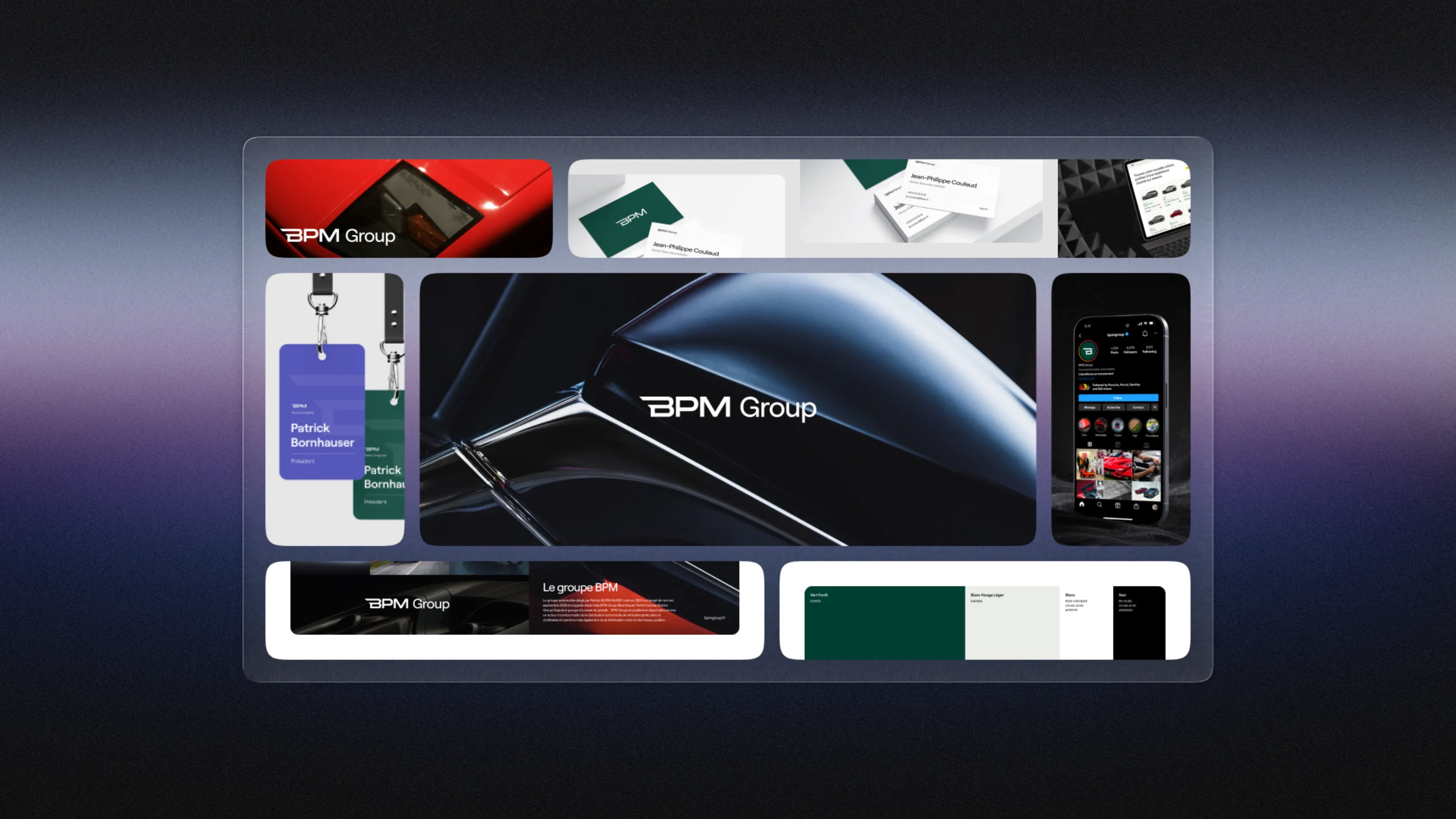.svg)
How to use PowerPoint as animation software
An animation software is an application that allows you to create movement and transitions on visual elements. These tools cover different techniques such as traditional 2D animation, vector animation, motion design or character animation. They are used to produce videos, dynamic presentations, interactive web content, and animated graphics for various communication mediums.


Join the thousands of businesses and executives who have trusted Slidor to turn their slides into high-impact presentations.



PowerPoint as Animation Software
PowerPoint has all the essential features of professional animation software: timeline (animation pane), keyframes (entry/exit points), interpolation curves (acceleration/deceleration), and integrated layer system. This native power places it at the same level as dedicated tools for presentation needs.
Timeline and Temporal Control
PowerPoint's Animation Pane functions like a professional timeline. Each effect has precise timing, customizable triggers, and advanced interpolation options. This interface allows creating complex sequences with perfect synchronization.

Creating an animated sequence in PowerPoint:
1. Select the object to animate
2. Animations tab > Add Animation - Choose effect (Appear, Wipe, Zoom)
3. Animation Pane - Reorder and adjust timings
4. Effect Options - Configure direction, speed, and acceleration curves
5. Preview - Test complete sequence
| Feature | PowerPoint | After Effects | Presentation usage |
|---|---|---|---|
| Visual timeline | ✓ Animation Pane | ✓ Complete timeline | Perfectly adapted |
| Keyframes | ✓ Automatic Start/End | ✓ Total control | Sufficient for 95% of needs |
| Interpolation | ✓ 4 predefined curves | ✓ Bézier curves | Covers all common cases |
| Learning time | 2-5 hours | 50-100 hours | Immediately productive |
Professional Effects and Transitions
PowerPoint offers more than 60 animation effects and 40 transitions covering all presentation needs. Morph effects create smooth transitions between common objects on different slides, rivaling professional motion design capabilities. To create impactful animations, mastering these effects is essential.

PowerPoint animation types:
- Entrance - Appear, Wipe, Zoom, Fade (30+ options)
- Emphasis - Pulse, Rotation, Color change (15+ options)
- Exit - Disappear, Reverse wipe, Fade out (30+ options)
- Motion Paths - Custom movements along defined paths
⚠️ Caution: Spectacular 3D effects (swivel, cube) appear dated. Favor Fade (0.5s), Wipe (0.3s), and Morph for modern and professional rendering.
Comparison with Other Solutions

While PowerPoint excels for presentations, other animation software serves different objectives. Understanding these differences allows choosing the appropriate tool according to context, particularly for tools like Canva or AI solutions.
After Effects: Advanced Motion Design
Adobe After Effects dominates the motion design sector for exported videos. Its sophisticated layer system, parametric effects, and granular control surpass PowerPoint for complex video productions. However, created animations require video export and cannot be modified in a presentation.

| Aspect | PowerPoint | After Effects |
|---|---|---|
| Price | Included Microsoft 365 (€69/year) | €287/year (alone) |
| Learning | 2-5 hours | 50-100 hours |
| Final format | Integrated in presentation | Video export (MP4/MOV) |
| Modification | Editable anytime | Requires complete re-export |
| Ideal usage | Business presentations | Marketing videos, credits |
Vyond and Powtoon: Explainer Videos
Vyond and Powtoon specialize in explainer and educational videos with pre-animated characters. These cloud platforms accelerate production of standardized animated content but generate non-editable video exports. For a more modern approach, AI tools for PowerPoint offer an interesting alternative.

Comparison for presentations:
- Vyond/Powtoon: Character templates, mandatory video export, $299-999/year
- PowerPoint: Total control over design, editable native animation, included in existing subscription
- Use case: Vyond/Powtoon for standalone videos, PowerPoint for interactive presentations
⚠️ Caution: Free versions of Vyond and Powtoon add watermarks. PowerPoint imposes no limitations on exports.
Animation Techniques in PowerPoint
PowerPoint animation techniques allow creating dynamic presentations with professional methodology. Mastering these principles transforms ordinary slides into memorable visual experiences.
Chart Animations
Animated charts in PowerPoint progressively reveal data to guide interpretation. Animation by series, category, or individual element precisely controls information appearance, particularly useful for pie charts and statistics.
Animating a chart in PowerPoint:
1. Select the chart - Click on integrated Excel chart
2. Animations > Add Animation > Appear (or Wipe)
3. Effect Options > Chart Animation tab
4. Choose type: By series, By category, By element
5. Define timing: 0.5s per element for optimal rhythm
| Chart animation type | Visual effect | Recommended usage |
|---|---|---|
| By series | Successive appearance of curves/bars | Temporal comparison |
| By category | Column-by-column revelation | Category comparison |
| By element | Each bar individually | Maximum narrative control |
| Wipe | Progressive curve tracing | Evolution over time |
Morph Transition
The Morph transition automatically detects common objects between slides and creates smooth transformations. This feature rivals the morphing capabilities of professional software.
Creating a Morph effect:
1. Duplicate the slide - Create two versions (before/after)
2. Modify objects - Move, resize, recolor on slide 2
3. Apply Morph - Transitions > Morph on slide 2
4. Adjust duration - 0.7-1s for smooth transformation
Morph use cases:
- Detail zoom - Enlarge specific element
- Shape transformation - Square becoming circle
- Spatial reorganization - Elements changing position
- Concept evolution - Visual transformation of an idea
Custom Motion Paths
Motion paths allow defining custom animation paths. Objects follow these trajectories with precise timing and acceleration control.
Creating a custom path:
1. Select the object to move
2. Animations > Motion Paths > Custom Path
3. Draw the path with drawing tools
4. Adjust speed - Smooth/Slow/Accelerate in Effect Options
5. Combine with rotation - Add Rotation effect for natural movement
Effective Animation Principles
Professional animation principles apply as much to PowerPoint as to specialized tools. Respecting these rules differentiates an amateur presentation from a professional result.

Timing and Duration
Optimal timing depends on animation type and presentation context. Too-fast animations prevent assimilation, while too-slow animations create boredom.
| Animation type | Recommended duration | Context |
|---|---|---|
| Text appearance | 0.3-0.5 second | Titles and key points |
| Slide transition | 0.5-0.7 second | Subject change |
| Complex morph | 0.7-1 second | Object transformation |
| Chart animation | 0.5s per element | Data revelation |
| Motion path | 1-2 seconds | Object displacement |
⚠️ Caution: Too-long animations slow narrative rhythm. Aim for 0.3-0.5s for majority of professional presentation effects.
Consistency and Hierarchy
Visual consistency maintains attention on content rather than effects. Using same animations for same element types creates predictable visual grammar.
Consistency system:
- Titles: Appear 0.5s
- Bullets: Wipe left 0.3s, automatic sequence
- Images: Zoom in 0.5s
- Charts: Animation by series 0.5s/element
- Transitions: Morph 0.7s or Fade 0.5s
Production Workflow
A structured workflow optimizes PowerPoint animation creation. This professional methodology guarantees consistency and efficiency throughout the project.
Preparation and Structure
Pre-animation checklist:
1. Finalize content - Complete text and visuals before animation
2. Define system - Choose 3-4 recurring animations
3. Create master - PowerPoint slide master with basic animations
4. Test on 2-3 slides - Validate timing and consistency
5. Apply systematically - Replicate across all, particularly for sales presentations
Export and Distribution
PowerPoint export formats:
- PPTX: Native editable format, preserved animations
- PDF: Static, lost animations
- MP4: 1080p video export, converted animations
- PPSX: Auto-launching slideshow, ideal for kiosks
Video export settings:
1. File > Export > Create Video
2. Resolution: Full HD (1080p) recommended
3. Slide duration: Use recorded timings
4. Quality: Presentation quality (8-12 Mbps)
| Format | Animations | Editable | Size (20 slides) | Usage |
|---|---|---|---|---|
| PPTX | ✓ Complete | ✓ Yes | 10-30 MB | Standard presentation |
| MP4 | ✓ Converted | ✗ No | 50-100 MB | Video broadcast |
| ✗ Lost | ✗ No | 5-15 MB | Static distribution |
Frequently Asked Questions
Can PowerPoint really replace professional animation software?
For professional presentations, PowerPoint offers all necessary features: timeline, keyframes, interpolation, and advanced effects. After Effects surpasses PowerPoint only for complex marketing videos requiring compositing and elaborate visual effects.
How long does it take to master PowerPoint animations?
2-5 hours suffice to master basics (effects, timing, animation pane). 10-20 hours allow exploiting advanced features (Morph, paths, chart animations). This learning curve is 10 times faster than After Effects.
Do PowerPoint animations work on all devices?
Native PowerPoint animations work on Windows, Mac, and PowerPoint Online. Mobile versions (iOS/Android) support playback but editing is limited. To guarantee universal compatibility, export to MP4.
What is the difference between animation and transition in PowerPoint?
Animations control objects inside a slide (text appearance, image movement). Transitions manage passage between slides (fade, morph). Both combine to create smooth experience.
Conclusion
PowerPoint is powerful and accessible animation software, offering professional timeline, keyframes, and sophisticated effects without intimidating learning curve. For business presentations and client management, its combination of animation features and native integration surpasses specialized tools requiring video exports. If you want professional animations without investing learning time, our presentation design agency creates custom animated presentations. Mastering animation principles (timing, consistency, hierarchy) transforms PowerPoint into motion design tool for memorable presentations.

.svg)


















